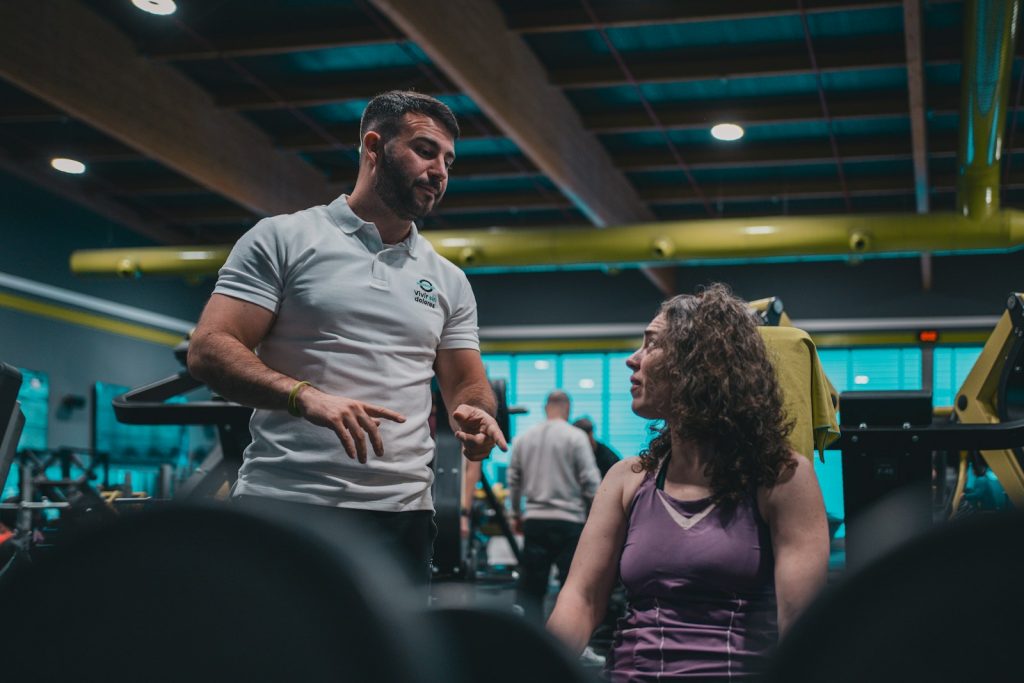The best fitness programs for beginners are those that offer clear structure, step-by-step progression, and support, allowing anyone to start getting fit at their own pace—even with zero experience. Whether you want to lose weight, gain strength, or simply feel healthier, choosing the right program makes a huge difference. Understanding your options helps you avoid confusion and gives you the confidence to start strong. In this guide, you’ll discover the top beginner fitness programs, current expert advice, costs, and everything you need to get started today. For official guidance, check resources like CDC Physical Activity Basics or your local health authority.

Why Beginners Need the Right Fitness Program
Starting a fitness journey can feel overwhelming, but the right program removes guesswork. Beginner-friendly fitness plans offer:
- Clear instructions and progression
- Minimal equipment (or none at all)
- Built-in motivation and accountability
- Flexibility to fit any schedule
- Safe, science-based routines
With the explosion of online workouts and apps, there are now more choices than ever. But which ones are actually worth your time?
Top 7 Best Fitness Programs for Beginners
1. Couch to 5K (C25K): Easiest Start for Cardio
Couch to 5K is the world’s most popular beginner running plan.
- How it works: 3 days per week, 20–30 minutes per session, for 9 weeks.
- Why it works: Gradual increase from walking to running builds stamina safely.
- Where to start: Free via the NHS C25K App or Zen Labs C25K.
- Best for: Anyone new to exercise who wants a cardio boost without gym membership.
| Feature | Details |
|---|---|
| Length | 9 weeks |
| Commitment | 3x/week, 20–30 mins |
| Equipment | Running shoes |
| Cost | Free |
2. Bodyweight & Calisthenics Programs
No gym? No problem! Bodyweight training uses your own body for resistance.
- Sample moves: Push-ups, squats, lunges, planks, wall sits.
- Benefits: Improves strength, burns fat, and requires no equipment.
- Popular options: Fitness Blender Free Workouts, Darebee Programs.
- Ideal for: Those who want to work out at home and see fast progress.
3. Yoga for Beginners: Flexibility & Mind-Body Health
Yoga flows are excellent for building core strength, flexibility, and reducing stress.
- Start here: Try 15–30 minute beginner yoga videos 2–3 times per week.
- Recommended resource: Yoga with Adriene YouTube Channel.
- Bonus: Yoga also improves focus and sleep.
4. Pvolve: Functional Fitness for All Ages
Pvolve is gaining attention for its joint-friendly, functional movement approach.
- What’s unique: Uses light resistance, slow controlled moves, and online classes.
- 2024 stats: Study shows 19% strength gain and 21% flexibility boost in 12 weeks for women aged 40–60 (Marie Claire, 2024).
- Where to join: Pvolve Official Site.
5. Online Fitness Apps for Beginners
Apps make starting easy and affordable. The best for beginners in 2025:
| App | Key Features | Cost | Website |
|---|---|---|---|
| Nike Training Club | Free beginner plans, video demos | Free | NTC App |
| Caliber | Personalized strength training | Paid | Caliber |
| BetterMe | Home workouts, nutrition, reminders | Subscription | BetterMe |
| SHRED | AI-powered workout customization | ~$10/month | Shred |
For a detailed list of pros and cons, check out Garage Gym Reviews’ Best Workout Apps 2025.
6. LISS, HIIT & Strength Training: Mix & Match
- LISS (Low-Intensity Steady State): Walking, slow cycling, swimming—easy for beginners.
Expert tip: Start with 30 min of brisk walking 3x/week (Healthline). - HIIT (High-Intensity Interval Training): Short bursts of intense activity (20 seconds on, 40 seconds off), scalable to your level.
- Strength training: Dumbbells, bands, or even cans of food can be used for resistance.
7. CrossFit Fundamentals for Beginners
CrossFit “Fundamentals” classes focus on safe technique and functional movement.
- Who it’s for: Anyone seeking a supportive, coached group setting.
- How to start: Look for a CrossFit affiliate gym.
How to Pick the Best Program for You
- Decide your main goal (cardio, strength, flexibility, weight loss).
- Evaluate your schedule: Can you commit 2–4 days/week for 20–40 minutes?
- Consider equipment needs: Most programs require little to none.
- Look for progression: Good programs help you gradually increase difficulty.
- Prefer support? Try group classes, apps with communities, or a local gym.
Common Questions from Beginners
Q: How much should I exercise per week?
Answer: The CDC recommends at least 150 minutes of moderate activity per week (like brisk walking) or 75 minutes of vigorous activity (CDC Guidelines).
Q: How much do beginner fitness programs cost?
- Most are free or cost $0–$20/month for app-based plans.
- In-person classes (CrossFit, yoga studios) can be $50–$150/month depending on location and membership.
Q: What if I have an injury or health condition?
- Always consult your doctor before starting a new program.
- Many beginner programs (yoga, Pvolve, walking) are gentle and adaptable.
Conclusion & Next Steps
The best fitness programs for beginners in 2025 make it simple, safe, and motivating to get started, whether at home or at the gym. Pick one from this list, schedule your first session, and stick with it for 4 weeks—you’ll see real progress fast. Need help deciding? Download a free app, join a local beginner class, or ask a certified coach for guidance. Your fitness journey starts now—take the first step and move toward a healthier you!
Ready to get started? Explore a free app or book your first beginner class today! For more tips and official resources, check out CDC Physical Activity Basics and NHS Couch to 5K.
